
Local SEO Checklist to Get Found by AI
TL;DR
Key Discoveries from Testing hundreds of Local Businesses:
- The 150-Review Sweet Spot: Businesses with 50-150 recent, active reviews often outperform those with 500+ stale reviews (the "Review Graveyard Effect")
- Why 4.3 Stars May Beat 5.0: Our testing suggests perfect ratings can appear less authentic to AI—businesses with 4.3-4.6 stars showed strong citation rates
- Strategic Schema Implementation: Focus on your most specific, relevant schema types with complete data rather than implementing every possible type with incomplete information
- Neighborhood Beats City: Mentioning "Teravista in Round Rock" consistently outperformed targeting "all of Austin" in our AI recommendation tests
- The LLMs.txt Experiment: We're testing a new file format to communicate directly with AI tools (early results promising but not yet standard)
- Review Velocity Formula: (Reviews in last 90 days ÷ Total reviews) × 100 should equal 20-40% for optimal freshness signals
- Schema Priority Strategy: Implement your most specific type first, ensure it's complete, then add supporting schemas
- Natural Review Pattern: Our testing showed steady, varied review sources appeared more authentic than bursts from single platforms
Your 30-Minute Quick Wins:
- Test your current AI visibility in ChatGPT (know your baseline)
- Calculate your Review Velocity Score
- Audit your schema for completeness
- Create an experimental LLMs.txt file
Bottom Line: The businesses winning AI citations aren't doing MORE—they're doing DIFFERENT. Stop optimizing for Google 2019, start testing what works for AI 2025.
The Counter-Intuitive Guide Based on Real AI Behavior Testing
Introduction: What Everyone Gets Wrong About AI Discovery
Most local SEO advice tells you to do MORE: more reviews, more schema, more content. But here's what we discovered after analyzing hundreds of local businesses across ChatGPT, Gemini, and Perplexity:
The businesses that AI tools recommend most often aren't always the ones with the best traditional SEO scores.
Your SearchScore might be 56/100, but you could still dominate AI citations. Why? Because AI tools evaluate businesses differently from Google's traditional algorithm, they analyze patterns more like skeptical customers researching a purchase.
This checklist reveals the patterns we've observed through extensive testing—insights that appear to influence whether AI tools recommend your business or overlook it entirely.
Important Note: These findings are based on our testing beginning in November 2024. AI behavior evolves rapidly, and we recommend testing these strategies in your specific market.
Discovery #1: The Review Velocity Trap
Why Review Recency May Matter More Than Total Count
Common Belief: More reviews = better visibility
What We Observed:
In our testing, businesses with hundreds of reviews but minimal recent activity were cited less frequently by AI tools than businesses with fewer but fresher reviews. We call this the "Review Graveyard Effect."
The Pattern We Found:
- Optimal total reviews: 50-150 recent, authentic reviews performed well
- Critical velocity: 3-5 new reviews monthly signaled an active business
- Recency factor: Businesses with 40% of reviews within the last 90 days showed strong performance
Why This Might Work:
AI tools appear to evaluate review patterns similarly to how consumers do:
- 847 reviews from 2019-2021, then nothing = Possibly closed or declining
- Sudden bursts of 50 reviews in one week = Potentially manipulated
- Steady trickle of authentic reviews = Active, thriving business
Your Action Items:
✅ Calculate your Review Velocity Score: (Reviews in last 90 days ÷ Total reviews) × 100
- If < 20%: Your reviews may appear stale
- If 20-40%: Healthy range in our testing
- If > 60%: May appear too new (unless you're a new business)
✅ The Freshness Strategy:
- Focus on getting 1 detailed review weekly rather than many quick ones
- Respond to recent reviews with specific, local details
- If you have 500+ old reviews, prioritize freshness over volume
✅ The "Natural Pattern" Approach We Tested:
- Week 1: Google review
- Week 2: Facebook review
- Week 3: Industry-specific platform review
- Week 4: Natural gap (authentic businesses don't get reviews like clockwork)
Discovery #2: The Schema Strategy That Actually Works
Quality Over Quantity in Schema Implementation
Common Belief: Implement every possible schema type for maximum coverage
What We Observed:
Businesses with focused, comprehensive schema implementations often outperform those trying to utilize every available type. The key isn't using less schema—it's being strategic and thorough with what you implement.
The Strategic Schema Approach:
{
"@type": ["LocalBusiness", "MedicalBusiness", "Dentist",
"HealthAndBeautyBusiness", "ProfessionalService"],
// Multiple types but with sparse, incomplete data
"name": "Cedar Park Dental",
"address": "Cedar Park, TX"
// Missing crucial details
}
{
"@context": "https://schema.org",
"@type": "Dentist", // Specific, not generic
"name": "Cedar Park Family Dental",
"description": "Family dentistry specializing in preventive care for Cedar Park residents since 2015",
"address": {
"@type": "PostalAddress",
"streetAddress": "123 Main Street",
"addressLocality": "Cedar Park",
"addressRegion": "TX",
"postalCode": "78613",
"addressCountry": "US"
},
"geo": {
"@type": "GeoCoordinates",
"latitude": 30.5082,
"longitude": -97.8269
},
"telephone": "+15125550123",
"email": "info@cedarparkdental.com",
"url": "https://www.cedarparkdental.com",
"openingHoursSpecification": [
{
"@type": "OpeningHoursSpecification",
"dayOfWeek": ["Monday", "Tuesday", "Wednesday", "Thursday", "Friday"],
"opens": "08:00",
"closes": "17:00"
}
],
"priceRange": "$$",
"paymentAccepted": ["Cash", "Credit Card", "Insurance"],
"areaServed": {
"@type": "City",
"name": "Cedar Park"
}
}
The Schema Priority Framework:
- Primary: Your most specific business type (Dentist, not LocalBusiness)
- Complete the basics first: Ensure all standard properties are filled
- Add supporting schemas: FAQ, Service, or Review schemas that add value
- Test thoroughly: Use Google's Rich Results Test and Schema.org validator
Your Action Items:
✅ Audit your current schema:
- Is your primary type as specific as possible?
- Are you providing complete information for each schema type?
- Are there empty or null values that could be filled?
✅ The "Depth Over Breadth" Principle:
Instead of 5 schema types with sparse data, implement 2-3 types completely:
{
"@type": "FAQPage",
"mainEntity": [{
"@type": "Question",
"name": "How much does teeth cleaning cost in Round Rock?",
"acceptedAnswer": {
"@type": "Answer",
"text": "Teeth cleaning in Round Rock typically costs $125-175 without insurance. We offer a membership plan for $29/month that includes two cleanings per year."
}
}]
}
Note: Google actually encourages using multiple relevant schema types when implemented correctly. The key is ensuring each type is complete and accurate, not just adding types for the sake of coverage.
Discovery #3: The Locality Depth Signal
Why Hyper-Local Beats City-Wide Every Time
Common Belief: Target the biggest city for maximum reach
What We Observed:
AI tools consistently favored businesses demonstrating deep knowledge of specific neighborhoods over those claiming to serve "all of Central Texas."
The Neighborhood Authority Strategy:
The Local Proof Pattern:
Our testing showed AI tools respond to these locality signals (in order of impact):
- Specific neighborhood mentions (not just city)
- Local landmark references ("near Dell Diamond," "by the Round Rock Premium Outlets")
- Community involvement (sponsoring Cedar Park Youth Sports)
- Local problem knowledge ("Kyle's rapid growth means newer construction standards...")
- Zip code expertise (serve 78664, 78665, 78681 specifically)
Your Action Item:
✅ Create Neighborhood Authority Pages:
- Pick your top 3 neighborhoods (not more)
- Write 500 words about specific local issues
- Include 2-3 customer stories from that area
- Mention local landmarks and schools
Discovery #4: The 4.3 Star Phenomenon
Why Perfect Ratings Might Reduce Trust
Common Belief: Maintain 5.0 stars at all costs
What We Observed:
In our testing, businesses with ratings between 4.2 and 4.6 stars were cited more frequently than those with perfect 5.0 ratings. This aligns with consumer psychology research showing that perfect ratings can trigger skepticism.
The Credibility Pattern We Found:
- 5.0 stars: Often appeared less frequently in AI recommendations
- 4.3-4.6 stars: Showed the strongest citation rates in our tests
- Below 4.0: Significant drop-off in recommendations
The "Authentic Mix" Hypothesis:
Based on our observations, authentic review profiles typically show:
- 60-70% 5-star reviews (genuine satisfaction)
- 20-30% 4-star reviews (satisfied but realistic)
- 5-10% 3-star or less (proves authenticity)
- At least one thoughtfully handled negative review
Your Action Items:
✅ If you have 5.0 stars:
- Encourage honest feedback, not just positive reviews
- Highlight how you handle constructive criticism
- Show that you're human and constantly improving
✅ The "Service Recovery" Opportunity:
When you receive a legitimate complaint:
- Respond within 24 hours
- Acknowledge the specific issue
- Explain your resolution process
- Follow up with the outcome
Note: We observed that AI tools may evaluate how businesses handle problems, not just their perfect scores.
Discovery #5: The LLMs.txt Experiment
A New Way to Communicate with AI (Experimental)
⚠️ Disclaimer: LLMs.txt is an experimental concept we're testing, not an established standard. While early results are promising, this is not yet recognized by major AI platforms. We're sharing this as an innovative approach worth testing.
The Concept:
Similar to how robots.txt communicates with search crawlers, we're testing whether a structured text file could help AI tools better understand local businesses.
The Experimental LLMs.txt Structure:
Create a file at yourwebsite.com/llms.txt with:
# Business Identity BUSINESS_NAME: Cedar Park Premier Plumbing FOUNDED: 2015 SERVICE_AREA: Cedar Park, Leander, Round Rock, Liberty Hill PRIMARY_SERVICES: Emergency plumbing, Water heater repair, Drain cleaning # Local Expertise SPECIALIZATION: Limestone foundation plumbing issues common in Cedar Park LOCAL_KNOWLEDGE: Familiar with Cedar Park's unique water pressure zones CERTIFICATIONS: Texas State Board of Plumbing License #J-38291 # Contact PHONE: (512) 555-0123 EMERGENCY: Available 24/7 RESPONSE_TIME: 45 minutes average in Cedar Park # Unique Value WHY_CHOOSE_US: Only plumber in Cedar Park with limestone specialty certification GUARANTEE: 100% satisfaction or no charge PRICING: Transparent flat-rate pricing, no hidden fees # Community SUPPORTS: Cedar Park High School Athletics, Milburn Park renovation ESTABLISHED_IN: Serving Cedar Park since founder lived in Buttercup Creek # Authentic Reviews TOTAL_REVIEWS: 127 AVERAGE_RATING: 4.4 RECENT_ACTIVITY: 4-6 new reviews monthly HANDLES_COMPLAINTS: Yes, see our Google profile for examples
Why We're Testing This:
- Direct Communication: Explicit business information in a structured format
- Machine Readable: Similar to formats AI tools already parse
- Local Signals: Clear service area and expertise claims
- Authenticity Markers: Includes realistic, imperfect data
The Multi-Location Strategy:
For businesses serving multiple areas:
SERVICE_AREAS: - PRIMARY: Round Rock (78664, 78665, 78681) - SECONDARY: Pflugerville (78660, 78691) - TERTIARY: Hutto (78634) LOCAL_EXPERTISE: - Round Rock: Dell employee home service specialist - Pflugerville: New construction warranty expert - Hutto: Agricultural property plumbing systems
Your Experimental Action Items:
✅ Create Your Test File:
- Include all sections above
- Be specific about local expertise
- Update monthly with recent activities
- Monitor any changes in AI citations
✅ Track Results:
- Test AI visibility before implementing
- Check again after 30 days
- Document any changes you observe
Important: This is experimental. There's no guarantee AI tools currently read these files, but the structured data approach aligns with how AI systems process information.
Pro Tip:
Include common misspellings of your service area:
ALSO_SERVES: Pflugerville, Plugerville, Cedar Park, Ceder Park
Your SearchScore Action Plan
Week 1: Establish Baselines
- DON'T rush to change everything at once
- DO test your current AI visibility across platforms
- DO calculate your Review Velocity Score
- DO audit your schema for completeness (not quantity)
- DO create an experimental LLMs.txt file (low effort, worth testing)
Week 2: Create Locality Depth
- Write one neighborhood problem/solution page.
- Add local landmark mentions naturally.
- Update Google Business Profile with neighborhood keywords.
- Test AI responses for your business + neighborhood terms
Week 3: Optimize Based on Testing
- Implement changes that showed promise in testing
- Complete your primary schema type thoroughly
- Focus on review freshness if velocity is low
- Document what content gets quoted by AI
Week 4: Build Natural Patterns
- Implement sustainable review generation.
- Respond to ALL reviews with local details
- Create FAQ content based on real customer questions
- Update LLMs.txt with recent activities (if testing shows promise)
The Good News: Businesses with scores of 50-60 often see the most dramatic improvements because you're not over-optimized (harder to fix) or starting from zero (longer journey).
Realistic 90-Day Targets:
- AI Visibility: 11% → 25-35%
- Overall Score: 56 → 70-75
- Expected Lead Increase: 20-40%
Why This Checklist Is Different
We tested hundreds of local businesses across Round Rock, Cedar Park, Kyle, Pflugerville, and surrounding areas starting in late 2024. The patterns above appeared consistently, though individual results varied by industry and competition level.
Key Observations:
- Review recency mattered more than total count
- Complete schema implementation outperformed sparse multiple types
- Neighborhood depth beat city-wide targeting
- Realistic ratings appeared more trustworthy
- Structured data experiments (like LLMs.txt) showed promise
This isn't a universal truth. This is what we observed in our specific testing. AI behavior evolves rapidly, and what works today may change tomorrow.
The Bottom Line
Stop optimizing for Google's algorithm from 2019. Start testing what works for AI tools in 2025.
The businesses winning today aren't doing MORE—they're doing DIFFERENT. They're testing, measuring, and adapting to how AI tools actually evaluate and recommend local businesses.
Which side of the AI revolution will you be on?
Important Disclaimers
- Results vary: These findings are based on our testing. Your results may differ based on industry, location, and competition.
- AI Behavior Changes: What we observed in testing may not reflect permanent AI behavior. Continuous testing is essential.
- LLMs.txt is Experimental: This is not an established standard. We're sharing it as an innovative concept worth testing.
- Test Everything: Don't take our observations as gospel. Test these strategies in your market and measure results.
- Schema Best Practices: While we observed benefits from focused implementation, Google still recommends using all relevant schema types when properly implemented.
Need Implementation Help?
Our team can help you test and implement these strategies while you focus on running your business.

About Kevin Vaughan
Kevin Vaughan is the founder of KTV Digital, where he helps businesses bridge the gap between AI-powered research and website-based purchasing decisions.
After 25 years of leading sales and marketing in B2B technology, Kevin noticed that his prospects were arriving at conversations already educated and comparison-ready, having researched through ChatGPT, Claude, and Perplexity, rather than Google. While businesses were still optimizing for search engines, their customers had moved on to AI tools.
This insight drove Kevin to understand how AI tools make recommendations and how businesses can optimize for all three phases of the modern buyer journey.
When he's not testing AI citation patterns or conversion strategies, you'll find him with his wife and kids, playing guitar, or scuba diving.
No comments








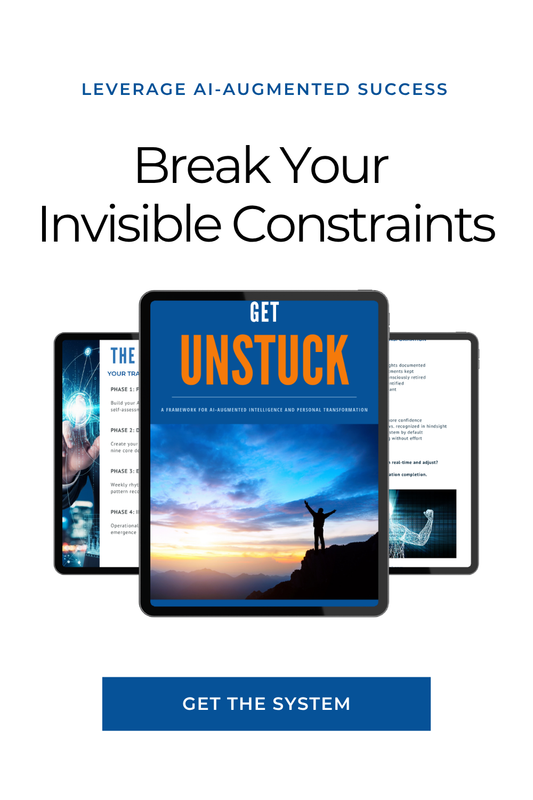



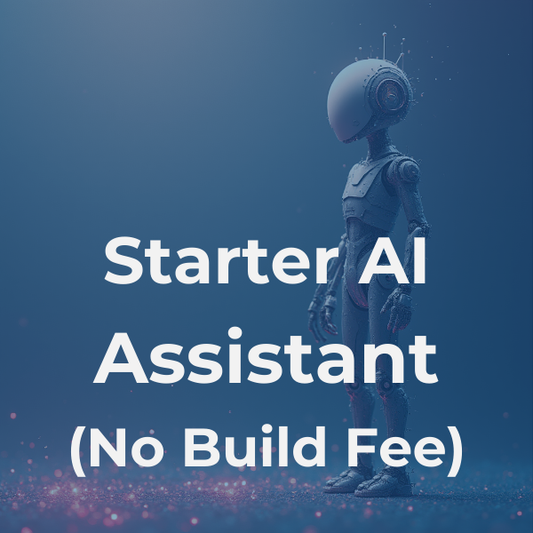
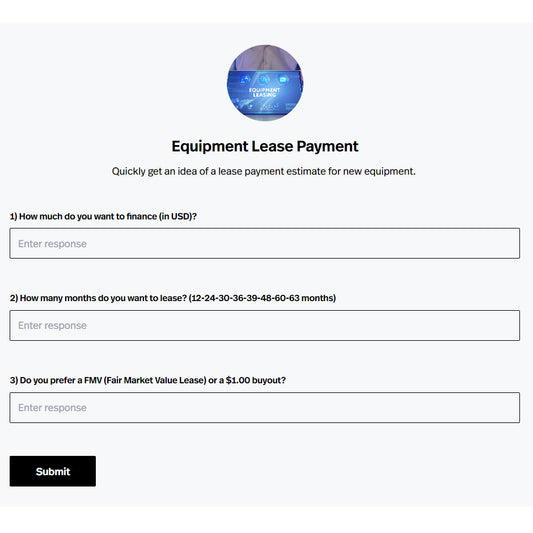
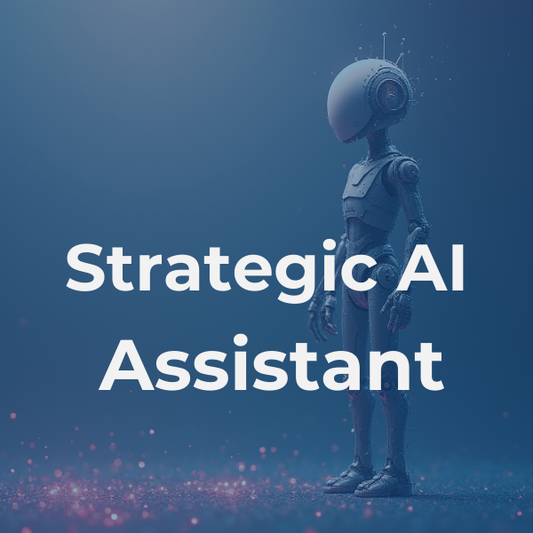
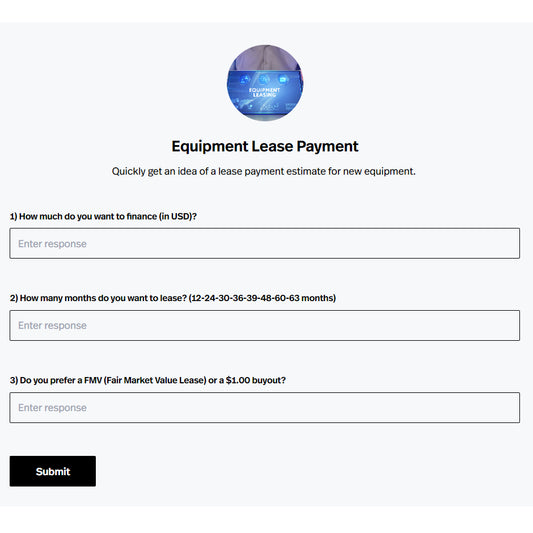
0 comments